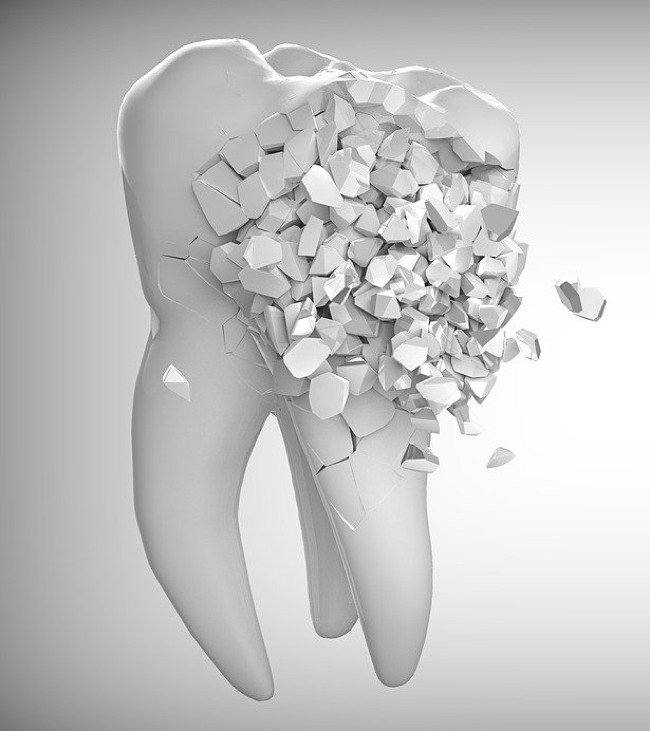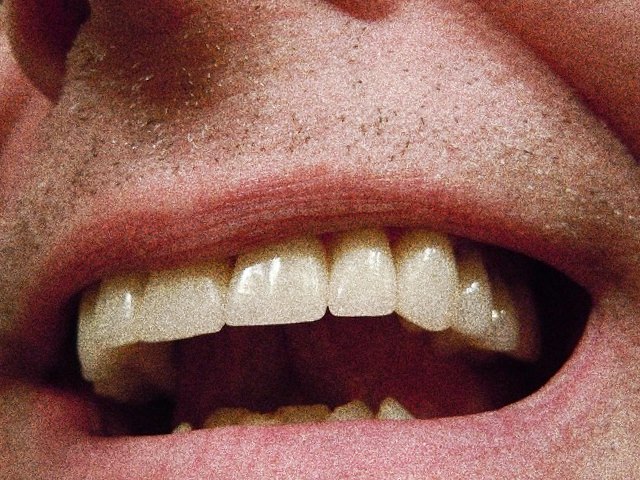Posted on Friday, January 15th, 2021 | 1,804 views
 This article covers the dangers of not treating cracked teeth, how they get cracked and when you should considering seeing the dentist. It’s a familiar story for a lot of people that visit the dentist: their teeth hurt when they bite into something, or they can see that they have a tiny crack in one of them.
This article covers the dangers of not treating cracked teeth, how they get cracked and when you should considering seeing the dentist. It’s a familiar story for a lot of people that visit the dentist: their teeth hurt when they bite into something, or they can see that they have a tiny crack in one of them.
There’s likely a good reason: at some point in the past, they cracked one of them and now it’s broken. If you notice that your teeth are beginning to go rotten or crack, it is important to bring this matter to the attention of your dental care professional to prevent unnecessary long term damage.
Why You Should Fix Your Cracked Teeth
If you ignore a cracked tooth for a prolonged period of time, further erosion of the enamel could develop, and you can become highly susceptible to a severe infection. This is especially true if you don’t practice regular oral hygiene like daily brushing and regular flossing.
Ignoring a cracked tooth can also leave the inner parts of your tooth exposed, cause damage to the nerve or even develop an abscess. The development of abscess is quite dangerous and needs to be looked at as quickly as possible. Usually an abscessed tooth will be painful so if you’re experiencing severe or moderate pain in your teeth, you should see your dentist as soon as possible.
Repairing a Cracked Tooth
 If only a small piece of enamel has chipped through the crack, a simple filling can repair the damage. A dentist usually recommends a filling if only a small part of the enamel has splintered. The common options a dentist can consider to treat a chipped tooth include using dental veneers, a filling compound, a crown, or a combination of them all.
If only a small piece of enamel has chipped through the crack, a simple filling can repair the damage. A dentist usually recommends a filling if only a small part of the enamel has splintered. The common options a dentist can consider to treat a chipped tooth include using dental veneers, a filling compound, a crown, or a combination of them all.
Using Veneers
Porcelain veneers can cover teeth to hide cracks, flakes and stains, and are made in a dental laboratory. If one of your front teeth are chipped or cracked, your dentist can recommend that you have it fixed with a veneer. A veneer will cover the front part of the tooth and hide cracks, flakes and discolouration. Choosing to use a veneer on a tooth depends on how badly the tooth has been damaged. Severely cracked or broken teeth can be better treated with other options like crowns and/or bonding.
Dental Crowns
If your tooth is severely cracked, broken, or a large part of the tooth has been lost, a dental crown can be used to correct the issue. Crowns are designed to look like a tooth, and they are applied to cracked or damaged teeth, not just a small piece of enamel. Covering a cracked tooth with a dental crown maintains the health of the tooth and prevents further damage.
A dental crown can be a great option for fixing a cracked tooth. A tooth that has chipped or is in pain when drinking or chewing may require a crown too. Cosmetically, crowns can be used to cover mishaps or heavily discoloured teeth. Crowns are also the a common solution for fixing chipped or cracked teeth where an injury has occurred.
Filling Compound
Dental bonding has a variety of uses, but one of the most common usages is for repairing broken or cracked teeth. Bonding is the process of repairing broken or chipped teeth and closing small gaps. Your dentist will fill the cracked tooth with a specialized compound which will be bonded to the teeth just like regular fillings work.
If your tooth has chipped, but you did not lose the broken-off piece, your dentist can use special bonding to reattach the tooth, or by bonding a tooth-coloured filling in it’s place. If there are too many pieces that have cracked or broken off, it’s a better idea to consider having a crown installed.
How Did My Tooth Get Cracked?
Even if your tooth looks fine, or it appears to be straight, a number of things could be happening underneath the surface that contribute to tooth-wear and make it weaker. In cases like these we can’t really tell by ourselves. It’s important to consider some form of cosmetic dentistry to fix the problem.
Misaligned teeth
The most common reason for cracked teeth is often the consequence of a previous tooth eruption. This is when the teeth erupt into the mouth from the jawbone. If your teeth begin to curve and the enamel wears away, it is because they have moved or grown irregularly. When misaligned teeth are not fixed, years of chewing and wear and tear, and cause them to become weaker, and they become more susceptible to cracking.
Cavities or tooth decay
The easiest-to-recognize problem with cracked or broken teeth is a cavity, A cavity is caused by a loss of dentin which is the hard layer that covers the bone of the tooth. Sometimes, the tooth can be so decayed or just decayed enough that it needs to be pulled.
This can be determined after receiving a full mouth X-ray to check the back of your teeth for not only tooth decay, but other issues that may need a dentist’s attention. When there’s decay or soft tissue damage that is not visible, a dental sealant—sometimes referred to as a crown—can be placed on a tooth to rehabilitate it, and get it back to normal. Note that tooth decay is permanent and it doesn’t go away on its own.
Bacterial Dangers
The major danger that your teeth face are bacterial and inflammatory issues. Bacteria can eat away at your enamel, causing your teeth to come out of alignment with each bite which further wears on the protective enamel, and can cause cracks.
Dental procedures gone wrong
There are also numerous dental procedures that are meant to improve the function of a tooth, but if not done right can also contribute to tooth wear. Even if a procedure appears successful, there may be microscopic damage that lingers. Sometimes that damage can cause the whole tooth to weaken, crack and/or eventually fall out.
Teeth grinding
Grinding your teeth can put them out of alignment and unnaturally cause the tooth’s enamel to erode. With a misaligned tooth, you can eventually end up chewing down in such a way as to cause the tooth or other teeth to irregularly connect and eventually crack. Warn down enamel can weaken the teeth and if you chew on something that’s hard, it could cause a crack to occur.
Ways to Avoid Cracking Your Teeth
There are several things you can do to maintain the strength of your teeth and avoid cracking them, including:
- Regularly taking vitamins and getting enough calcium and other important nutrients.
- Avoid chewing hard foods like nuts, candy, ice-cubes or even some cereals.
- Be attentive when chewing your food, and don’t chew aggressively.
- Avoid grinding your teeth and seek treatment if you do.
- If your mouth has been injured due to an accident, see your dentist immediately.
- Refrain from opening bottles with your teeth or using in ways beside eating.
- Report any missing fillings to your dentist.
- Regularly visit your dentist for checkups to ensure there are no cracks on your teeth.
Schedule Regular Checkups
Evaluating the condition of your teeth by visiting your dentist on a regular basis is important. Regular visits allow you to take the necessary steps to prevent further damage and ensure they remain healthy. If you do not take the necessary steps to ensure cracks in your teeth are fixed, you run the risk of damaging them even further and possibly causing yourself other major health issues.
The Take Home
If you ever feel pain when you take a bit of something, or if you see an obvious crack in your teeth, don’t hesitate to call your dentist and get it fixed. Your overall health depends on it. If you believe you have a cracked tooth, visit our appointments page to schedule a visit to our office so we can take a look at your teeth and provide you with the right solutions to getting it fixed properly.
Read More...
About Dr. Pio Modi
After Dr. Modi graduated from McMaster University with an Honours B.Sc. in chemistry in 1997, he received his Doctorate of Dental Surgery from the University of Toronto in 2001. He began to practice dentistry in Brantford the following year. Throughout his career he's completed hundreds of hours of continuing education programs and has studied with some of the best educators in the industry.
Leave a Reply